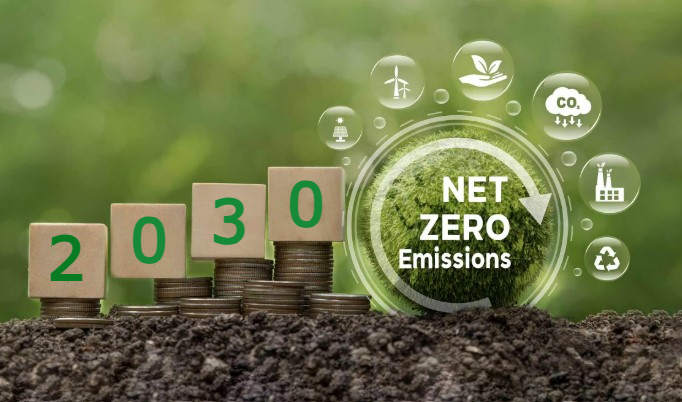The Future of Home Heating in the UK: Innovations and Trends Beyond 2025
The world is changing, and the call for decarbonization has never been louder. As we navigate the transition to a greener, more sustainable future, the domestic heating industry is evolving rapidly to meet these demands. From innovative technologies like smart boilers and alternative fuels like Hydrogen and Hydrotreated Vegetable Oil (HVO) to shifts in energy efficiency regulations, the landscape of home heating is being redefined.
Governments are playing a significant role in shaping the future of heating through stricter energy efficiency standards, grants for renewable solutions like heat pumps, and a push for modulating boilers. These initiatives aim to make sustainable heating options accessible, efficient, and aligned with net-zero goals.
On the consumer side, the demand for eco-friendly, cost-effective, and space-saving solutions like combination boilers is steadily rising. Modular heating systems, which can adapt to the changing needs of households, are also gaining popularity.
Positioning itself at the forefront of this transformation, Sapphire Boilers is setting the standard for innovation with its HVO-ready and fully modulating systems. Sapphire Boilers embraces these trends and anticipates future needs. It delivers sustainable and efficient heating solutions that meet the evolving expectations of the government and homeowners.
Emerging Technologies in Domestic Heating
Smart Boilers: Integration with OpenTherm thermostats for enhanced efficiency and user control
The rise of smart home technology has revolutionized how we manage energy consumption, and boilers are no exception. Smart boilers, integrated with OpenTherm thermostats, offer a level of precision and control that maximizes efficiency and reduces energy waste. By continuously modulating the boiler’s output to match the exact heating needs of a home, OpenTherm technology ensures consistent comfort while optimizing fuel use.
One of the most significant benefits of this integration is the ability to control heating systems via Apps. Homeowners can monitor and adjust their heating remotely, set schedules tailored to their routines, and receive real-time feedback on energy usage.
Smart heating systems can be integrated with OpenTherm-compatible thermostats on gas or oil boilers, allowing homeowners to enjoy the benefits of precise modulation and energy savings. Even in off-grid areas with no gas access, oil boilers combined with smart technology offer a reliable heating solution. These systems remain efficient, ensuring comfort in remote locations. This ensures that advanced heating innovations are accessible to everyone, regardless of their location or energy source.
The Sapphire Boilers, as an OpenTherm-certified boiler, seamlessly integrates with OpenTherm-compatible thermostats and apps. This ensures that homeowners who choose oil heating benefit from precise modulation, enhanced efficiency, and complete control over their heating systems. Sapphire Boilers offers a future-ready choice for modern homes.

Hydrogen and HVO Boilers: The role of clean energy alternatives and its compatibility with Sapphire Boilers
The UK government is exploring plans to replace natural gas with hydrogen gas due to its potential to significantly reduce carbon emissions, although there are doubts about this ever being a reality. Hydrogen, when burned, produces only water vapor, making it a zero-carbon alternative to traditional fossil fuels. Importantly, this transition is designed to minimize hassle and additional costs for homeowners as hydrogen becomes more widely available.
At the same time, Hydrotreated Vegetable Oil (HVO) emerges as another viable low-carbon solution. Derived from waste oils and fats, HVO provides a renewable alternative to kerosene and other liquid fossil fuels commonly used in off-grid heating systems. With the potential to reduce carbon emissions by up to 90%, HVO is an immediate solution for households in rural and remote areas where gas or hydrogen infrastructure may not be available for years.
Sapphire Boilers are HVO-ready and initially designed to run on kerosene. They can easily transition to HVO, offering a flexible and sustainable heating solution for off-grid users.
In fact, many new boilers are already labelled ‘Hydrogen-blend ready’ or ‘HVO-ready’ . Low-carbon fuel is very promising. Now the government is exploring whether it could help reach our goal of being net zero as a country by 2050.
Carbon-Neutral and Low-Carbon Heating: Innovative solutions like carbon capture technologies embedded in heating systems
As the world aims for net-zero emissions, demand for low-carbon heating grows. Innovative technologies such as carbon capture systems embedded in heating appliances are revolutionizing how homes can reduce their environmental impact. These systems capture carbon dioxide generated during fuel combustion. This prevents the gas from entering the atmosphere and contributing to global warming.
Low-carbon heating solutions also include advances in boiler technology that improve energy efficiency while minimizing harmful emissions. Sapphire Boilers is at the forefront of innovation with its Low NOx domestic boiler range, delivering exceptional performance and environmental benefits. Designed from the ground up to revolutionize domestic heating, these boilers provide a significant step-change in efficiency and emissions reduction. Equipped with advanced burner technology, they comply with the stringent 2018 ErP Directive NOx emission standards. This ensures minimal nitrogen oxide output.
Energy Efficiency Standards and Regulations
Predictions about stricter energy efficiency laws and how they will impact home heating choices
As the UK moves closer to its 2030 climate goals (to reduce emissions by 68%), predictions suggest that stricter energy efficiency laws will play a crucial role in shaping the future of home heating. The government plans stricter energy efficiency regulations for new and existing homes. The focus will be on reducing carbon emissions and improving heating system performance.
These laws are likely to include higher standards for insulation, energy-efficiency, air-tightness, and the integration of renewable energy systems in domestic properties.
According to the statistics of the Climate Change Committee, the UK has set ambitious decarbonization targets for home heating. They aim to install 600,000 heat pumps annually by 2028.
Approximately 10% of existing homes in the UK will need to be heated by a heat pump, compared to only approximately 1% today.
The government aims for 100% clean power by 2030, following NESO’s advice. At least 95% will come from low-carbon sources, with no more than 5% from unabated gas.

The Push for Low-Carbon Alternatives and Policy Changes
Home heating currently contributes around 18% of the UK’s total greenhouse gas emissions, with traditional gas and oil boilers.
The carbon emissions from gas boilers are substantial. Over 14 million gas boilers in UK homes emit around 13 million tonnes of CO2 annually.
This highlights the urgent need to transition to low-carbon and carbon-neutral alternatives like heat pumps and low-carbon boilers to help the UK meet its net-zero goals.
Government subsidies and incentives, like the Boiler Upgrade Scheme, are predicted to become more prevalent. These will encourage homeowners to switch to greener heating systems and move away from gas and oil.
However, stricter energy efficiency regulations may bring challenges. Homeowners in rural or off-grid areas might find it harder or more expensive to switch to alternative heating technologies.
Changes are also on the horizon for Energy Performance Certificates (EPCs). The current system for issuing these certificates has faced criticism for being outdated and inconsistent. For instance, properties with heat pumps—a low-carbon heating solution—may receive lower ratings due to high electricity costs, despite their environmental benefits.
The proposed government changes aim to modernize EPCs, making them more accurate and useful for property owners and tenants. Key updates include reducing the EPC validity period from 10 years to as little as two years, with other options being five or seven years. Additionally, penalties for failing to provide a valid EPC could increase from £200 to £325 or £400.
Government gas boiler ban and adoption of modulating Opentherm combi boilers by 2028
The UK government first introduced plans to phase out gas and oil boilers in 2019 as part of its broader decarbonization strategy. The proposal for banning the sale of new gas and oil boilers for existing homes came later, with the government setting a tentative target of 2035 to phase out the sale of these boilers. However, this timeline has seen revisions and clarifications over time. The consecutive governments have been clear that homes with existing gas boilers will not need to remove them. The ban will only affect new home sales.
The Warm Homes Plan has confirmed that no one will be forced to remove existing gas or oil boilers from their homes.
Also, the government is focusing on improving the efficiency of all new gas combination boilers. A range of proposals, has been developed, with consultations expected to take place soon.
Starting in mid-2028, all new gas combi boilers (≤45kW) sold in the UK must modulate their output to at least 15% of maximum capacity. This eliminates the inefficient on/off cycling common in many existing systems. This change will significantly reduce fuel waste and improve overall energy efficiency in homes.
For larger gas boilers (45kW ≥ 32kW), the government is considering even stricter requirements. They must modulate their output down to 10% without on/off cycling. This is crucial because larger systems have higher energy outputs. Reducing energy waste in these systems can significantly lower overall carbon emissions.
In addition to the changes for gas boilers, the government is also looking at how oil combination boilers can be adapted to meet these efficiency standards. While oil boilers have not traditionally had modulation capabilities, newer models are being developed to include this feature. By 2028, it is proposed that all combination oil boilers (≤45kW) must be capable of modulating their output to 30% of their maximum output without on/off cycling. This change will be particularly beneficial for off-gas grid consumers, offering them the ability to get more efficient and environmentally friendly heating systems.
Homeowners Trends in Heating
Increased Interest in Modulating Heating Systems
The trend towards modulating heating systems has been gaining significant growth in recent years, and for good reason. Homeowners are increasingly seeking solutions that let them scale heating and hot water output based on their needs. This is in contrast to systems that run at full capacity all the time. This approach offers both energy efficiency and cost savings, two key factors that are top of mind for today’s conscientious homeowners.
*Modulating heating systems, including many modern combi boilers, automatically adjust their output based on demand. They conserve energy during low demand and increase output during peak times, ensuring efficient energy use without waste while maintaining consistent comfort. This flexible functionality allows homeowners to only use the amount of energy necessary to maintain comfort, avoiding the waste that comes with running a system at maximum capacity.
As awareness grows about the financial and environmental benefits of modulating heating systems, many homeowners are turning to these technologies as a way to future-proof their homes.
*Read the article ‘Stand out from the Standard: The Unmatched Modulation Control of Sapphire Boilers’
Demand for Reliability, Low Maintenance and Customization
Homeowners are prioritizing reliability and low maintenance in their heating choices, reflecting a desire for systems that provide consistent performance without frequent repairs or costly upkeep. Modern heating systems now include self-diagnostic features that identify and report issues before they escalate into significant problems. This proactive approach to maintenance reduces downtime and ensures that boiler continue to operate efficiently.
Longer warranties have also become a key selling point, giving homeowners peace of mind and confidence in their investment. Boilers manufacturers and service providers that offer extended warranty periods and reliable after-sales support are seeing increased demand, as these features align with the need for low-maintenance and dependable solutions.
For instance, Sapphire Boilers offer an impressive *25-year warranty on heat exchangers, highlighting the durability and reliability of these boilers. This extended coverage assures homeowners that their heating system is built to last and provides long-term protection against unexpected repair costs.
Read the article ‘A Boiler That Goes the Distance: Sapphire Boilers' durability with 25-year warranty and why it matters’.
Easy access to professional maintenance services further enhances the appeal of boilers manufacturers, as homeowners value the convenience of prompt and efficient servicing when needed.
The rising popularity of zoned heating systems fuels the trend toward customization. These solutions allow homeowners to tailor heating to specific areas of their homes, providing comfort where it is needed most while avoiding wasted energy in unused spaces. For instance, homeowners can cool bedrooms during the day while keeping living areas at a comfortable temperature. This level of control not only enhances comfort but also helps reduce energy consumption and lower utility bills.
Zoned heating is usually integrated into smart home systems. Sapphire Boilers are OpenTherm certified and designed to enhance customization for homeowners. App -based controls and scheduling make it easy to adjust heating settings remotely.
Incorporating both reliability and customization, modern heating systems are responding to the diverse needs of today’s homeowners. These solutions provide peace of mind, greater efficiency, and personalized comfort, making them a cornerstone of the future of home heating.
Demand for Hybrid Heating Systems
Homeowners in the UK are increasingly exploring hybrid heating systems that combine traditional boilers with renewable technologies, such as air-source or ground-source heat pumps. These systems provide the best of both worlds by offering reliable heating from boilers during colder months, while utilizing renewable energy sources to reduce environmental impact and energy costs throughout the rest of the year.
The government’s push for decarbonization and financial incentives like the Boiler Upgrade Scheme are encouraging more homeowners to consider hybrid systems. These incentives help offset the initial costs, making the transition to a hybrid setup more accessible.
Sapphire Boilers are well-suited for hybrid heating systems, offering reliability, efficiency, and compatibility with renewable technologies. By seamlessly integrating into a hybrid setup, Sapphire Boilers can serve as a dependable heat source while enabling homeowners to reduce their carbon footprint and lower energy bills.
Sapphire Boilers’ Role in the Future of Heating
Sapphire Boilers are already ahead of the Governments plans regarding improving energy efficiency in UK homes. As an Opentherm-certified modulating boilers, they deliver exceptional energy efficiency and carbon emission reduction, setting a new standard for domestic liquid fuel boilers.
Sapphire Boilers not only align with government expectations but also offer long-term savings and improved comfort for homeowners, offering reliability, durability, low maintenance and customization. Homeowners in off-gas grid areas, who rely heavily on oil and alternative heating solutions, have a great solution for their old boiler’s replacement.
Award winning Sapphire Boilers are taking significant steps to position itself as a leader in heating system innovation, with a strong focus on sustainability and future-proof technology. One of the key areas of innovation is the development the of HVO-ready (Hydrotreated Vegetable Oil) range of boilers. Both internal and external models are already preparing to be fully compatible with HVO, ensuring that homeowners can transition to a greener fuel without the need for a complete system overhaul. This is particularly important in line with the Government ambitious net-zero goals.

Industry Perspectives on the Future of Home Heating from Managing Director of EOGB and Sapphire Boilers Martin Cooke
In the oil sector we have seen the government question industry plans for HVO, especially around the availability of the feedstock, and although the industry has attempted to put this to bed several times with evidence to prove there is sufficient supply we get the same old story that more evidence is regular. Now we have a raising product standards for Space Heating Consultation, which includes modulating oil combi boilers by 2028 as a consideration and we fully welcome this along with Open Protocol controls. However, we really need industry clarity from the government to drive investment into the sector to see fully modulating liquid fuel boilers with OpenTherm control as standard by 2028 utilising HVO, for and overall fuel and emission reduction.
Conclusion
As the UK advances towards a greener future, the home heating industry is undergoing a profound transformation driven by innovative technologies, stricter energy standards, and evolving consumer needs. The integration of smart controls, low-carbon fuels like hydrogen and HVO, and hybrid systems is redefining how we heat our homes, ensuring enhanced energy efficiency and reduced environmental impact.
Amidst this evolution, Sapphire Boilers stands out by offering cutting-edge, fully modulating, and HVO-ready solutions that not only meet current regulatory expectations but also anticipate future demands. By embracing these trends, homeowners can enjoy superior performance, lower emissions, and significant cost savings, all while contributing to the nation’s decarbonization efforts.
In essence, the future of home heating is not just about technological innovation—it’s about creating sustainable, reliable, and adaptive heating systems that will secure comfort and energy resilience for generations to come.





